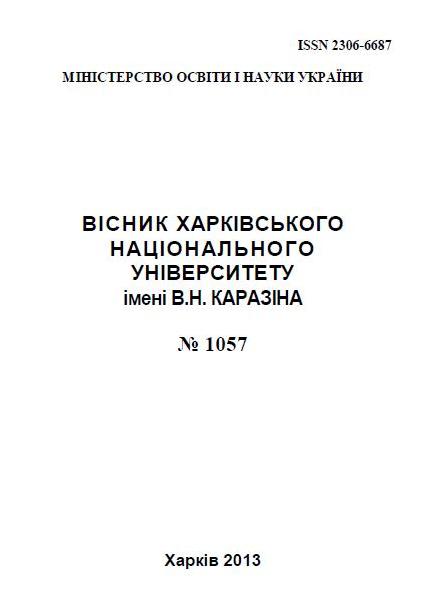СПІВВВІДНОШЕННЯ РЕЛІГІЇ І МОРАЛІ В АНТИЧНІЙ ФІЛОСОФІЇ ДОБИ ВИСОКОЇ КЛАСИКИ
Анотація
Автор осмислює проблему зв’язку релігії і моралі через призму ідей видатних філософів
античності. В статті показано, що саме в період високої класики сформовані концепции про відмінності
між релігією та мораллю (софісти) і про їх сутнісну єдність (Сократ, Платон, Арістотель). У статті
наголошено, що більшість вчень античних мислителів доби високої класики розглядали мораль як дар
богів, зв’язок іманентності і трансцендентності. Автор робить висновок, що релігійні інтуїції
Сократа, Платона, Арістотеля дозволили філософам наступних часів (стоїкам, неоплатонікам та
середньовічним мислителям) вийти за межі історично обумовлених трактувань моралі і виявити її
абсолютні засади.
Яремчук С.М. Соотношение религии и морали в античной философии периода высокой
классики. Автор осмысливает проблему связи религии и морали через призму идей видающихся
философов античности. В статье акцентировано, что именно в период высокой классики
сформированы концепции о различиях между религией и моралью (софисты) и о их сущностном
единстве (Сократ, Платон, Аристотель). В статье акцентировано, что большинство учений античных
мыслителей периода высокой классики рассматривали мораль как дар богов, связь имманентности и
трансцендентности. Автор делает вывод, что религиозные интуиции Сократа, Платона, Аристотеля
позволили философам позднейших времен (стоикам, неоплатоникам и средневековым мыслителям)
выйти за пределы исторически обусловленных интерпретаций морали и выявить ёё абсолютные
основания.
Ключевые слова: абсолютные моральные ценности, благо, этика, мифология, мораль, религия.
Serhiy M. Yaremchuk. The Relation of Religion and Morality in the Philosophy of High Classical
Period. The author examines the problem of relation the religion and morality through the famous ancient
philosophers’ ideas. The article demonstrates that in the High Classic period were formed the concepts about the
difference between the religion and morality (Sophists) and about their unity as well (Socrates, Platoon,
Aristotle). There are the accents in the article that the majority of the classic philosophers’ teachings
understudied the morality as the gods’ gift and the religion of immanence and transcendence. The author arrived
at the conclusion that the religious intuitions of Socrates, Platoon and Aristotle made it possible for the
philosophers of further periods (Stoics, Neo-Platonists, Middle Adds thinkers) to across the historical cordons of
interpretations of morality and to find the absolute morals foundations.
In teachings of antiquity of time of the high classics a moral and religion was abstracted from
mythological inseparability. A moral is thought oriented to the policy, society as sphere of practical realization of
space order. A necessity weakens for it, as soon as speech calls about higher Blessing (sophists). On the other
hand, in the works of ancient thinkers of the high classics the conceptions unity of moral and religion are
presented (Socrates, Plato, Aristotle) being firmly established. Through a moral and religion a man comes to
higher Blessing, arrives at beatific life. A moral is perceived as a gift of gods, copulas immanent and
transcendent. Religious and moral experience, intelligent from positions of philosophy, only then is
acknowledged as real, when contacts with absolute and eternal space. Religious intuitions allowed Socrates,
Plato, Aristotle and later stoics and thinkers of the Middle Ages to go out outside the historically conditioned
interpretations of moral and educe its absolute bases.
Keywords: absolute morals values, ethics, mythological, morality, religion, well-being.




